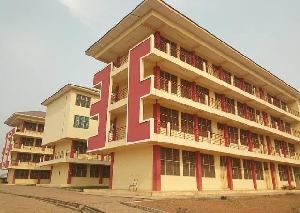Accra, Dec. 23, GNA - The International Convention for the Protectio= n of All Persons from Enforced Disappearance came into force on Thursday but much remained to be done, a release from the UN Office in Geneva sent to GN= A said.
According to the release the Group of five Experts that worked on the Convention said: 93The entry into force of the Convention is a new and important step in the right direction. But it is not enough." It said: 93On this important occasion, we urge States to make all possible efforts to prevent and eradicate the heinous practice of enforced disappearance and to bring to justice all those believed to be responsible for the crime; refrain from any act of intimidation or reprisals against those persons who contribute to the eradication of the practice; and take effective measures to realize the rights to truth, justice and reparation."
Enforced disappearance is considered to be the arrest, detention, abduction or any other form of deprivation of liberty by agents of the Stat= e or by persons or groups of persons acting with the authorization, support o= r acquiescence of the State, followed by a refusal to acknowledge the deprivation of liberty or by concealment of the fate or whereabouts of the disappeared person, which place such a person outside the protection of the law. "The Convention breaks new ground in the fight against the scourge o= f enforced disappearances. It includes for the first time in a treaty the right of any person not to be subjected to enforced disappearance," the Group said. The Convention recognizes the right of all the persons affected by enforced disappearance to know the truth about the circumstances of the crime, the progress and results of the investigation and the fate of the disappeared person.
States that ratify the Convention commit themselves to conduct investigations to locate the disappeared person, to prosecute those responsible and to ensure reparations for survivors and their families. "This is a momentous step, a day that has been looked forward to by many in all parts of the world, including families of those who have disappeared," it said.
"Despite this important step, we condemn the fact that enforced disappearances continue to occur all over the world. As recent as our last session, the Working Group examined newly-submitted cases of enforced disappearances and information on previously accepted cases from more than 40 countries from all the regions of the world. "We still see secret detention facilities, kidnappings and abductio= ns by States agents against political dissenters and persons accused of terrorism, harassment against relatives of people disappeared, and widespread impunity."
"We congratulate the 21 States that have ratified the Convention and reiterate our call upon all Governments that have not ratified the Convention to do so as soon as possible, and to accept the competence of th= e Committee on Enforced Disappearances to receive and consider individual and inter-State communications of the Convention, when ratifying it," the Working Group said.
How States abide by their obligations under the Convention will be monitored by a panel, to be known as the Committee on Enforced Disappearances. This independent and impartial treaty body will monitor implementation of the Convention and can receive complaints from or on behalf of victims when the national authorities fail to fulfil their obligations. The countries that have ratified the convention are: Albania; Argentina; Bolivia; Brazil; Burkina Faso; Chile; Cuba; Ecuador; France; Germany; Honduras; Iraq; Japan; Kazakhstan; Mali; Mexico; Nigeria; Paraguay; Senegal= ; Spain and Uruguay.
General News of Thursday, 23 December 2010
Source: GNA












